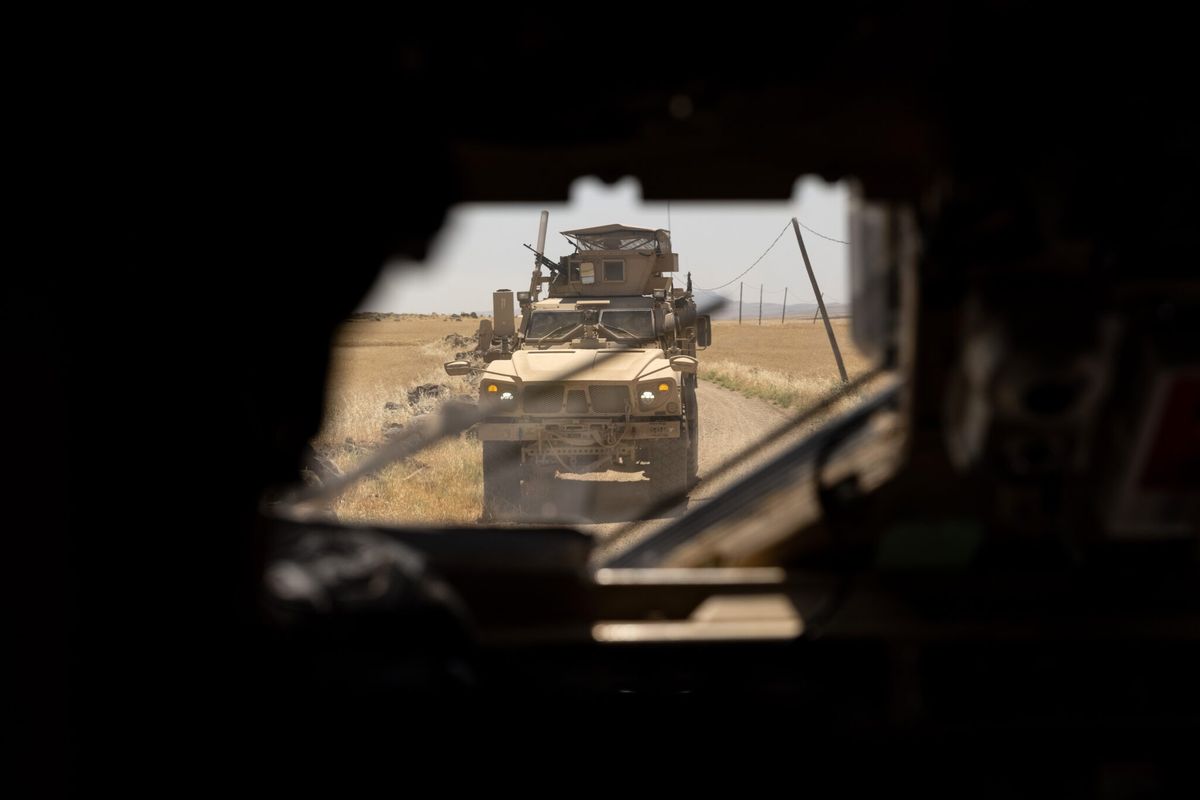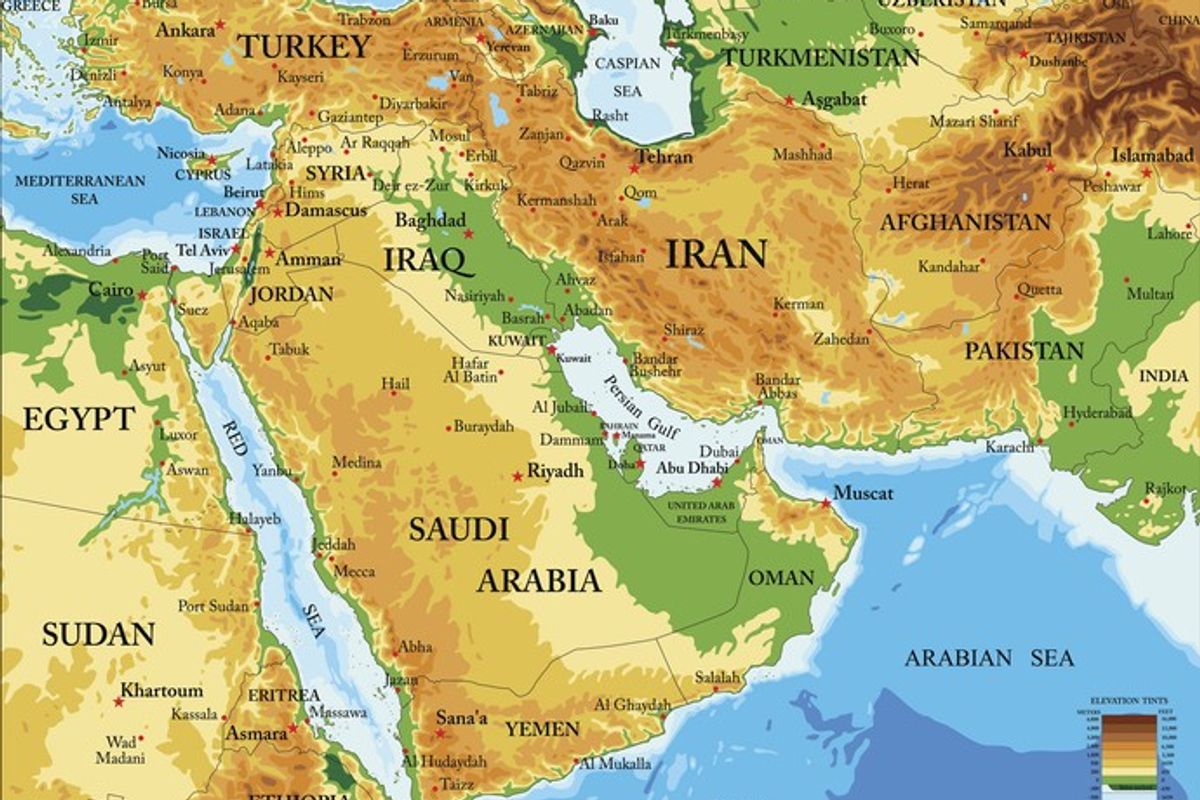Forces on all sides of the sectarian divide are aligning against the Islamic State in Iraq ahead of the much anticipated and well-telegraphed effort to retake the northern city of Mosul.
Last week Iraqi forces, with the help of U.S.-led airstrikes, retook the northern district of Shirqat, bringing an Iraqi army once near complete dissolution to the doorstep of the Islamic State’s stronghold in Iraq.
At just 60 miles south of Mosul, Shirqat was finally secured by Iraqi security forces while Iranian-backed Shi'ite Muslim militias loyal to the Iraqi government, which had surrounded the area for months, waited in the wings, Reuters reported.
“Currently we are heading towards liberating Nineveh (where Mosul is located, the last province remaining under Daesh, or the Islamic State), from which we regained major areas and we shall complete its liberation by the end of this year,” predicted Iraqi Prime Minister Haidar al Abadi while addressing the UN General Assembly last week.
That the Iraqi Army and Iranian militias would work together is no surprise in a country with a Shiite-dominated government following decades of Iraqi Sunni leadership under Saddam Hussein.
However, joining them in the planned Mosul offensive are Sunni tribesmen, along with Kurdish fighters, as well as U.S. Special Operations Forces.
The cooperation illustrates how weary many of Iraq’s armed power brokers and their allies have become of the deadly and disruptive presence of the Islamic State in their country. Their shared distaste for the violence wrought by the hardline terror group forms their common bond.
Without this alliance, it is highly unlikely that the Iraqi Army alone could achieve the same results.
The Islamic State had been encroaching on the Iraqi capital, having wrested control of Anbar Province just to the west of Baghdad, but Iraqi forces have retaken some key cities in Anbar, such as Fallujah and Ramadi, depleting the ranks of the hardline group in the process and simultaneously demoralizing the group. As the tide continues to turn against ISIS, the combined forces are readying to mount an offensive on Mosul, Iraq’s second-largest city.
U.S. and Iraqi officials suggest that the Mosul campaign could start next month, though there are still concerns that there isn’t a plan in place for post-Islamic State governance in the city following two years of siege-conditions there.
Compounding that problem are reports that the Islamic State set numerous fires in the Qayara oil fields as some fighters fled the city, presumably heading west toward the Syrian border.
The area around the Qayara oil fields is already being used as a staging ground for military and humanitarian operations in advance of a Mosul offensive. The fires and their caustic clouds of thick black smoke would make it difficult to get humanitarian relief supplies to the citizens of Mosul if and when the city is recaptured from the Islamic State, the Associated Press reported. And the Mosul campaign could be further delayed to the end of the year unless the fires can be brought under control and other logistical challenges, such as how to continually supply forces fighting the Islamic State, are worked out.
The Islamic State resorting to sparking oil fires amid retreat is strongly reminiscent of the same tactic used by Iraqi forces under Saddam Hussein during the First Gulf War, when they retreated from Kuwaiti territory, relying heavily on destructive guerrilla tactics to continue their flight.
The Islamic State is also suffering from a sharp drop in manpower, as their recruitment numbers have dwindled to a trickle.
The Washington Post reported earlier this month that amid territorial losses in Iraq and Syria, the ranks of those joining the Islamic State to replace either those killed in battle or who have simply put down their arms and gone home, has been drastically reduced.
At its peak, the flow of would-be foreign fighters from Turkey into Syria reached 2,000 a month. U.S. intelligence officials say that number has gone down to about fifty.
Governments in Europe and elsewhere are reporting similar findings, saying fewer of their citizenry are opting to join the ranks of the Islamic State and other extremist groups.
Though the Islamic State might be on the ropes when it comes to recruitment and ability to hold its territory, that’s not to say the fight is nearly won in Iraq. Far from it. The effort to retake Mosul could be months in the making and cost several thousands of lives on both sides, perhaps even more among the civilians caught in the middle of the density populated city of some two million inhabitants.
The Islamic State, though depleted in its ranks, is still on the offensive, recently firing a rocket containing a mustard agent at an airfield in Qayara, some 40 miles from Mosul, which is being used by U.S. and Iraqi forces as an operations hub for the assault on Mosul.
Though no one was reportedly injured in the attack, it indicates the Islamic State will not sit by idly as a multi-force offensive is being planned against it.
It’s also still waging attacks away from its power base in Mosul. A triple suicide attack over the weekend in Tikrit left nearly a dozen members of Iraq’s security forces dead. The fact that the city of Saddam Hussein’s birth had long been recaptured from the Islamic State, didn’t stop ISIS from brazenly attacking checkpoints there.
Lastly, and perhaps most importantly, in the event that the Islamic State is forced out of Iraq, the vacuum left could easily lead to infighting among those groups currently working together to defeat them.
If the Second Gulf War that led to Saddam’s fall from power is any indication of events to come, the removal of the Islamic State from Iraq will just be the beginning of another long, bloody struggle among the Shiites, Sunni, and Kurds over the territory ISIS previously occupied.
Carmen Gentile has covered the wars in Afghanistan and Iraq, as well as other conflicts. His work has also taken him to West Africa, Latin America, Southeast Asia and elsewhere. Carmen's recent reporting has been along the Turkish/Syrian border where he covers the refugee crisis.













